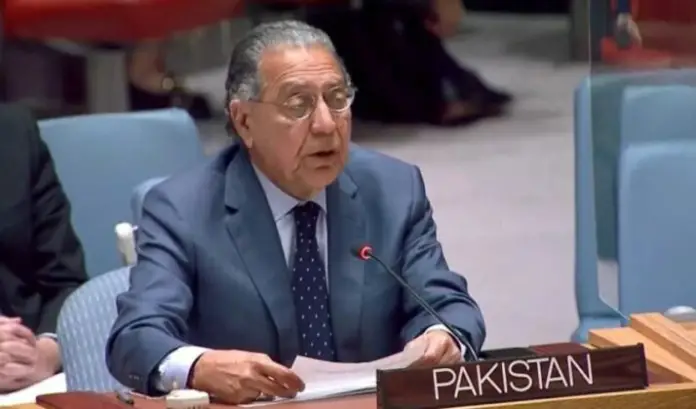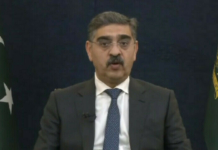Pakistan firmly rejected a proposed UN Security Council reform model put forth by the aspirants for permanent seats (India, Brazil, Germany, and Japan).
The plan, presented by India on behalf of the Group of Four nations, suggested expanding the Council’s membership from 15 to 25-26, with the addition of six permanent and four or five non-permanent members.
Ambassador Munir Akram, Pakistan’s permanent representative to the UN, voiced Pakistan’s opposition during the Intergovernmental Negotiations (IGN), stressing their alignment with the Uniting for Consensus (UfC) Group in opposing the creation of new permanent members.
Akram stressed the need for expansion and equitable representation in reform efforts. He criticized the G-4 model for skewing towards more permanent seats over non-permanent ones, which he argued would exacerbate the imbalance within the Council. Despite a general agreement on enlarging the UNSC, member states have remained divided over the details of reform.
The current composition of the UNSC includes five permanent members and 10 non-permanent members. Akram highlighted the disparity in representation between permanent and non-permanent members, particularly in the proposed G-4 model. He argued that this would diminish the chances of representation for the majority of countries that would not hold permanent seats.
Akram called for equity and equitable representation in the Council, stressing the need to accommodate the diversity of UN membership. He criticized the G-4 model for favoring certain states for permanent membership over others, which he believed contradicted the principles of fairness and democracy.
Furthermore, Akram questioned the democratic legitimacy of electing permanent members indefinitely, as it would lack accountability. He challenged the notion that the reform process should serve the individual national ambitions of any state, advocating instead for a democratic process that represents the interests of all UN member states.
In addressing the criteria for permanent membership, Akram questioned the contributions of G-4 countries to global peace and security, particularly in ongoing conflicts such as those in Ukraine and Gaza. He called for a model that accommodates cross-regional groups and proposed alternatives such as non-permanent or regional seats.
Ultimately, Akram urged for dialogue to address the shortcomings of the G-4 proposal and find solutions that promote accountability and represent the interests of all UN member states. He questioned whether the G-4 was ready to engage in such a dialogue to accommodate cross-regional aspirations within a revised framework.







